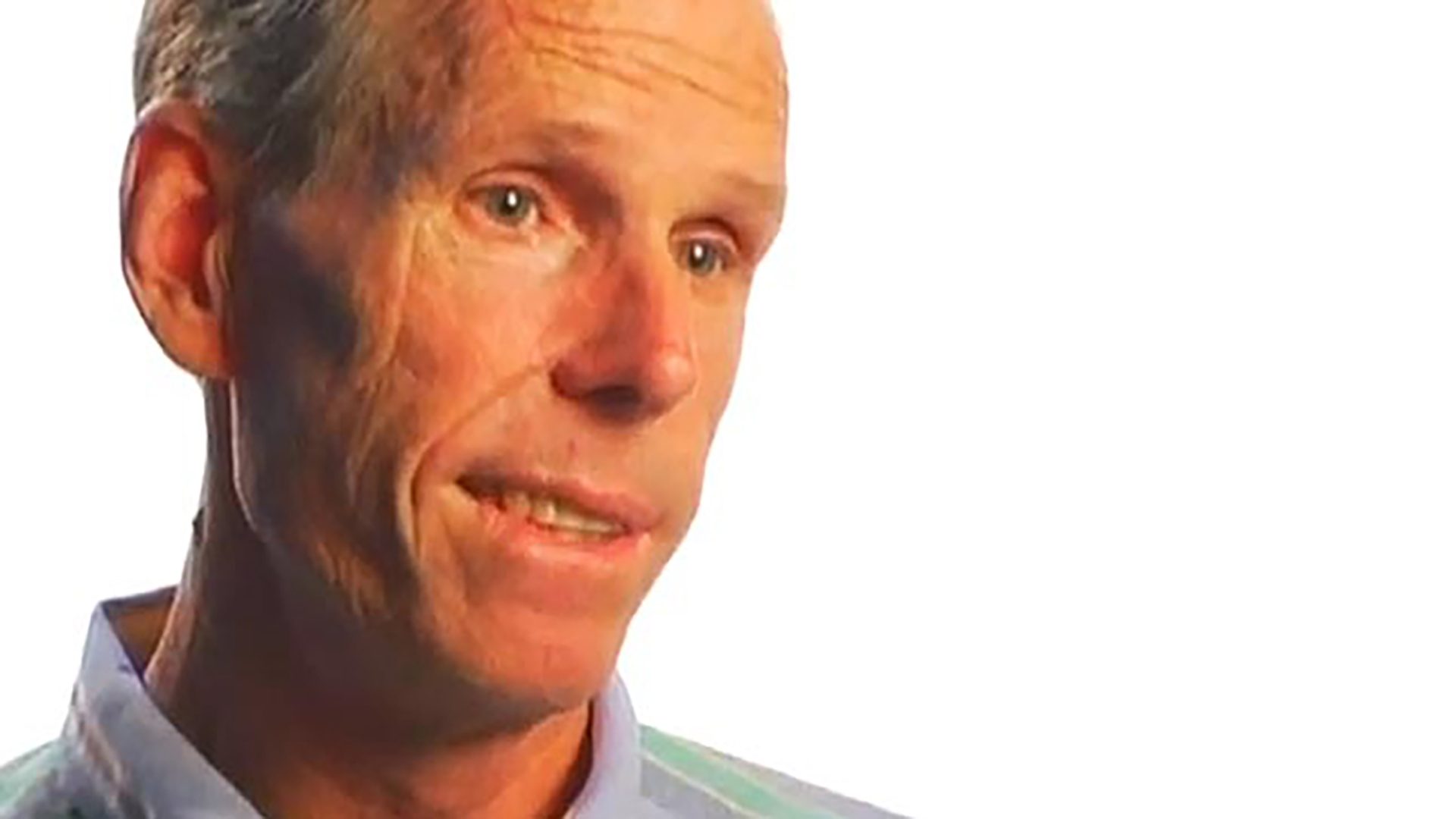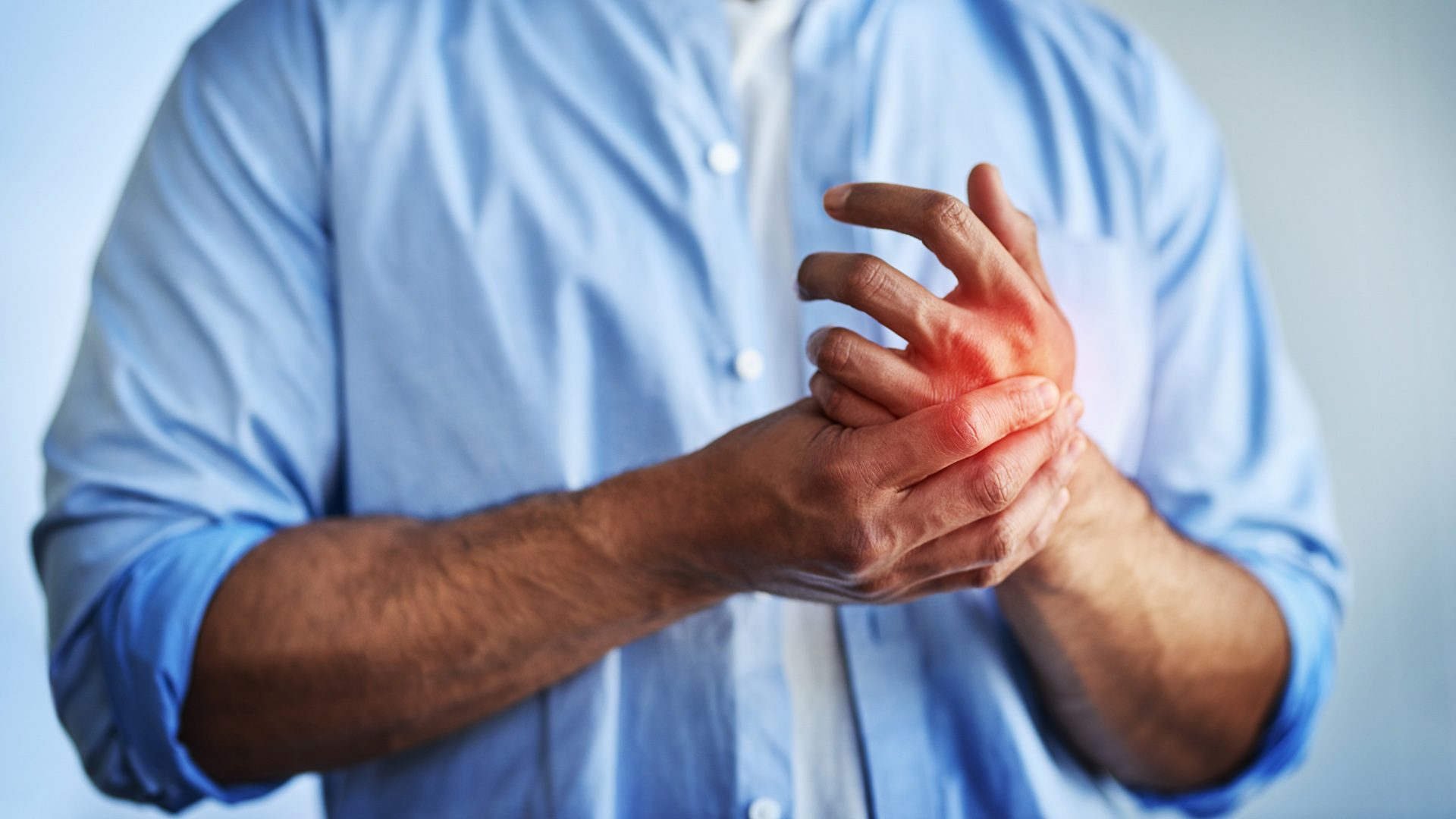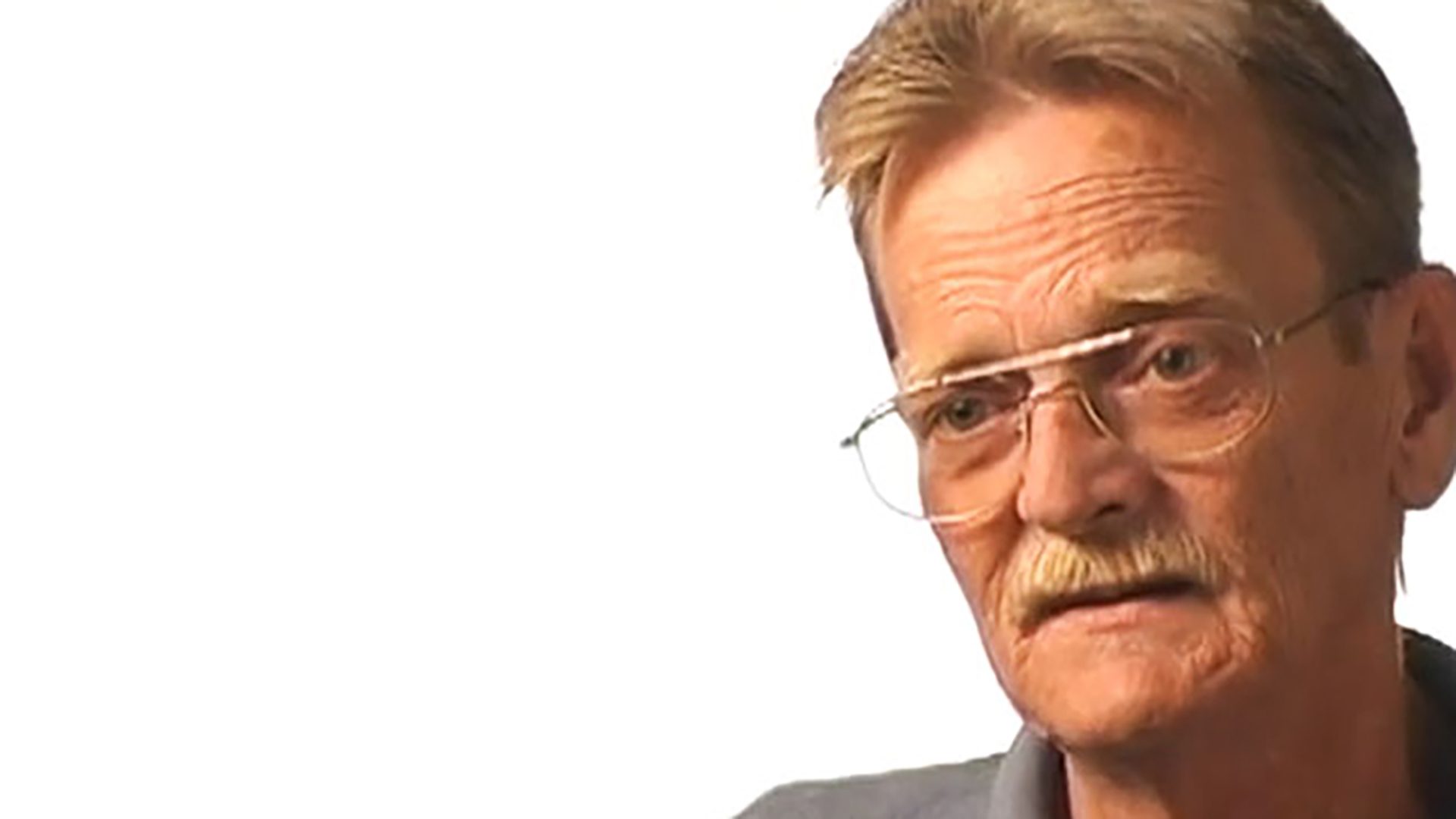Survivor Interview – Jerry A.
Jerry is a melanoma survivor. He discusses changes to his lungs, exercise, emotional effects of cancer, and living with uncertainty.

I became a cancer survivor when I was diagnosed with melanoma in 1991.
I had a wart on my arm. I went to a skin cancer specialist, and he said, “Doesn’t look like anything to worry about, but we’ll take it off and biopsy it.” It ended up being a secondary melanoma, meaning that it wasn’t the primary source. I had to undergo a body search, and they never could find a primary melanoma. That was done in early November of 1991. I was told that I had cancer involvement in my right axillary lymph nodes, under the right arm, that whole section of lymph glands. I immediately underwent all kinds of tests, and then about three weeks later had my first operation, which was to remove that entire lymph system.
Then I was recovering from that surgery. I just started to get my regular life back in order. And then I was diagnosed with the right lung involvement. I had a huge tumor in the middle of my right lung. So they took most of my right lung. I guess it was about four months after the first operation. So another setback. I was back to getting my treatment and all of that, and about two or three months later, I complained of a pain in my right shoulder. They found an independent tumor in the middle of my right shoulder. So then they removed that. The first two operations were seven-and-a-half hours each. The third operation was a shorter three-hour operation. That was the last of the operations I’ve had. Then I went on my immunotherapy and kept that up for five-and-a-half years. I was in the hospital every month getting vaccines. That stopped, and I’ve basically been cancer-free ever since the third operation.
Coming from being a really good athlete and having really good endurance, I don’t have the endurance like the long road riders do. I went from being what people would say, “a super-human athlete” to just being very mediocre, which was a big adjustment. As soon as I got back into any kind of an exercise routine, I realized that once I started to get aerobic. I got shortness of breath and my heart rate would just go through the roof. When you don’t have both lungs, your heart works a lot harder to get the oxygen that’s going to have to pump out of one lung. So when people are doing exercise and their heart rates are 120, which is comfortable, mine’s 150 or 160, which is not real comfortable. If you do two hours of exercise at a high heart rate, you’re exhausted. So it’s harder to exercise and get the same kind of exercise. Then that psychologically affects you, because you don’t want to exercise as hard, because you’re never going to get that rush and the endorphins like you used to.
I remember the day that they diagnosed me. I left the hospital, and I couldn’t find my car. It was in a parking garage. I literally was bumping into cars. I was so broken up. I couldn’t see where I was walking. It was just like, “Oh, my God. This can’t be happening to me.” My father died within four months of being told he had cancer. All I could think of was, “I might only have 120 days left. What do I do? How do I organize my life? I’ve got so many loose ends. I’ve got to clean my closets out. I don’t want everybody to come in after I’m gone and see that my closets are…” Just stupid stuff like that. Emotionally, you don’t drop to the bottom; you get thrown to the bottom. I think most people do. It’s a matter of how long some people stay there. I have friends that have been diagnosed with cancer since, and I’m actively involved with them from an emotional standpoint, trying to say, “You’ve got to pick yourself up and get up and go, because if you’re going to stay depressed, you might as well end it today. Find a bridge and jump, because life like you’re living it is not worth it.” It took me less than a week. I think that my athletics really helped me pull that together. I was very strong from my athletics. I think emotionally, I just compartmentalized myself and said, “This is where I need to go and how I need to get there.” Then I just focused.
Some people need groups. Some people need therapists. Some people just do it themselves. I figured out ways to do it myself, and I try to convey that to some of my friends and people that I know. I’ve had the John Wayne Cancer Foundation call me up and say, “We have a guy in Idaho, and he’s really having problems dealing with his disease. Can you call him or can he call you?” And I’ll say, “Sure.” I remember spending three hours with a guy from Idaho one day. He was coming down here for his treatments, and he called me back and said, “I can’t thank you enough. You put me on the right track.” That’s the greatest pleasure. That’s what’s really good about having cancer…you get to do those kinds of things for people. They may not succeed. They may end up dying. But emotionally, they’ve gotten themselves in a good place.
I viewed my life in a big mosaic, and I said, “Okay, what are the good parts of what’s happened to me?” Those are the things I’m going to focus on. I’m going to forget everything bad that happened to me. I took the good things that my parents taught me, the great memories that I had from my father, friendships that I had, places that I’d gone and seen, then I thought, “What a lucky guy I am. I’ve been traveling all over the world. I’ve met all these people. I’m a lucky guy. So what have I got to complain about? I’ve led a full life, because I’ve done more things than probably most people do in twice that lifespan.” What is a full life? It’s quality, and I’ve had quality. If it ends tomorrow, maybe I’ll be screaming and kicking the last few minutes while I’m checking out, but right now, I’m feeling okay about it. I didn’t allow myself to get down and think about the ramifications. About six years later, I asked my doctor, “So what were my odds?” I was just curious, because now I felt I was out of the woods. He said, “You had about a 15% chance.” I said, “Whew. I’m sure glad I didn’t ask you, because it might have been tougher to climb out knowing that.”
I’ll talk to anybody that wants to listen. I had a time where I went down to the clinic and I was getting treatment. You get into a waiting room. There’s like 20 people there. Everybody was pretty new, and they were talking about their disease. I just sat and listened. I think I was six years down the road at this time, at least. I just listened and listened. And, “Oh, I’ve got this.” And, “Oh, woe is me. And I’ve got that.” And they’re all feeding off of each other – mostly negative. Finally, somebody looked at me and said, “You haven’t said a word. You’ve been in here for like a half-an-hour.” So they said, “What level were you?” And I said, “I was a Stage 4, Level 4.” At Stage 5, they just send you home. At Stage 4, you got one foot on a banana peel and the other one off El Capitan. And they said, “Wow! How did you do it?” And I said, “You know what? I just think positive.”
I think so much of it is the mental part. I’m constantly working on that, because I know that I’m free today, but it can always recur in a different form. I could get a different form of cancer, or I could get a melanoma again. Who knows? But I don’t worry about it every day. I’m constantly staying positive, because it makes my life happier to do it that way. Not think about it. Other people want to talk to me about it all the time. You know, “How did you do?” I’ll be on a ride with people, and they’ll go, “You only have one lung. I can’t believe this.” We’re going up a hill and they’re like, “I’m dying. This guy’s got one lung, and he’s right next to me.” I’m dying worse. I just don’t tell them. Keep a positive outlook on everything so you can stay happy and stay positive and hopefully beat it.
Livestrong means staying constantly positive and trying to stay physically fit, mentally fit, and alert.
My name is Jerry Ash, and I’m a 13-year melanoma survivor.

